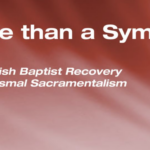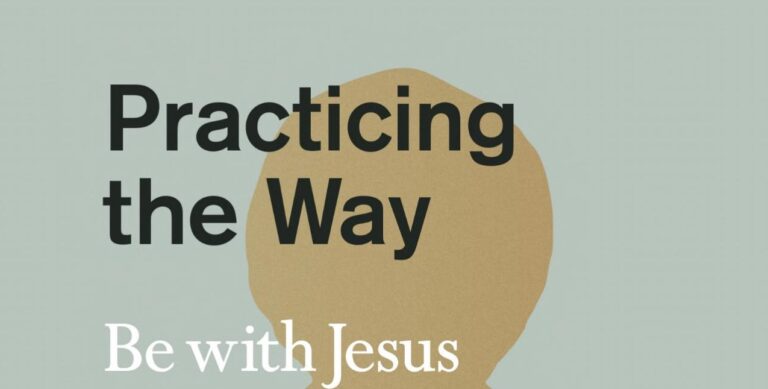In Numbers 14, God says he will wipe out all of Israel because of their constant unbelief (Num 14:11–12). Moses prays, and God relents (Num 14:13–20). Moses changed God’s mind. Right?
Not only would that contradict the Bible’s teaching of God’s immutability (he cannot change), an anchor of comfort and assurance to believers, but it also seems to contradict the theology of the book of Numbers, which says, “God is not a man, that he might lie, or a son of man, that he might change his mind” (Num 23:19). If God’s mind doesn’t change in Numbers 14, what does?
To answer that question, we need to see what happens in the chapter and how the author of Numbers intends us to understand this story in the context of Israel’s time in the wilderness.
What Happened in the Wilderness?
On the verge of entering the promised land, Israel sends representatives to investigate the land and report what they find (Num 13). They report that the land is good but full of giants Israel wouldn’t be able to defeat. Only Caleb and Joshua oppose them, saying that if God is with them, they will not fall.
The first scene in Numbers 14 shows how Israel responds to the spies’ report. They say, “Why is the Lord bringing us into this land to die by the sword? Our wives and children will become plunder. Wouldn’t it be better for us to go back to Egypt?” So they said to one another, “Let’s appoint a leader and go back to Egypt” (Num 14:3–4).
God responds to their unbelief by telling Moses, “I will strike them with a plague and destroy them. Then I will make you into a greater and mightier nation than they are” (Num 14:12). Moses pleads with God to show mercy, because the Egyptians and “the nations that have heard of your fame” will hear about it and question God’s ability to fulfill his promise (Num 14:13–16). He pleads with God to magnify his power and pardon his people according to his steadfast love (Num 14:17–19).
God answers Moses’ prayer with merciful discipline. The unbelieving generation would not die immediately, but none of them—except Joshua and Caleb—would enter the promised land. They would all die in the wilderness because of their unbelief (Num 14:20–38). In the final scene of the chapter, Israel again responds in unbelief, attempting to take the land without God, and they are routed by the Amalekites and Canaanites (Num 14:39–45).
God says he will wipe out Israel and start again with Moses, but that never happens. Did Moses calm down an angry God like a good friend talking him out of a fight?
Tested in the Wilderness
We could answer this question through the biblical doctrine of God. Change is an attribute of creatures; immutability is an attribute of the Creator. God cannot change. This is a crucial point, but for many it may feel unsatisfying. It appears to dodge the issue raised in the text. This is why, along with affirming God’s immutability, we can also stay in the text and see how the context of the Pentateuch sheds light on what happens between God and Moses.
What happens in the wilderness is a test of faith. While Numbers is its own book, with its own theme and purpose, it is not isolated. It belongs to the larger story of the Torah (Genesis through Deuteronomy), and this context helps us understand the author’s intent in Numbers 14.
Forty years after Numbers 14, Moses tells the generation about to enter the promised land: “Remember that the Lord your God led you on the entire journey these forty years in the wilderness, so that he might humble you and test you to know what was in your heart, whether or not you would keep his commands” (Deut 8:2). The wilderness was a test of faith, revealing what was in the heart of God’s people and proving that God was trustworthy (Deut 8:3–4). Recognizing the wilderness as a place of testing means that God’s statement in Numbers 14:11–12 is not a shift in his plans, but a test posed to Moses.
The sin of the people in Numbers 14 is unbelief. In verses 1–10, they fail to trust God’s promise, God’s goodness, and God’s power when they refuse to enter the land. In verses 39–45, they again act in unbelief by trying to take the land after God had promised forty years in the wilderness and the death of every adult in that generation besides Joshua and Caleb (Num 14:28–32).
Both episodes show Israel failing to trust God’s word and acting out of unbelief. God tests Moses along similar lines. Earlier, Moses had complained to God about the people, saying, “Why have you brought such trouble on your servant? Why are you angry with me, and why do you burden me with all these people?” (Num 11:11). Numbers 14:12 seems to grant Moses’ wish—God will wipe out these complainers and start again with Moses. How does Moses respond?
A Faithful Plea
Moses speaks to God in an entirely different manner than we might expect. He intercedes for Israel, pleading with God to be merciful. His request is based on God’s character, God’s work, and God’s word.
If the Egyptians hear that Israel died in the wilderness, God’s glory in the Exodus would be questioned. They would say, “Since the Lord wasn’t able to bring this people into the land he swore to give them, he has slaughtered them in the wilderness” (Num 14:16).
Moses’ plea rests on the fact that God always keeps his word. What he promises, he fulfills. He promised to bring his people into the land (Num 14:13–16). By his word, he revealed himself to be “slow to anger and abounding in faithful love, forgiving iniquity and rebellion. But he will not leave the guilty unpunished, bringing the consequences of the fathers’ iniquity on the children to the third and fourth generation” (Num 14:18).
Moses does not plead for mercy because he expects the people to do better next time. He pleads for God’s mercy “in keeping with the greatness of your faithful love” (Num 14:19). Moses’s plea can be summarized simply as asking God to keep his word. Israel’s unbelief is contrasted with Moses’ faith.
Moses does not calm down an angry God like a referee stepping in to stop a fight. Rather, Moses responds to the test of faith with trust in the God who does not change.
A Mediator Who Trusts God
Moses is like us in some ways and not like us in others. Unlike us, Moses was chosen by God as the covenant head of his people. He acted as a prophet speaking on behalf of God. He also acted as a priest, interceding for the entire covenant family. He was the leader and deliverer of God’s people. In Numbers 14, Moses—the covenant head—has his trust in God tested in the wilderness.
Sound like anyone?
Matthew’s Gospel reveals Jesus as the “prophet like Moses” whom God promised to raise up. Before Jesus brings God’s word to God’s people from a mountain in Matthew 5–7, he is tested in the wilderness (Matt 4:1–11). Jesus is tested to see whether he will do the Father’s will in the Father’s way, or grasp for glory according to Satan’s promise (Matt 4:8–10).
Like Moses, he faces a test of trust. Unlike Moses—who eventually succumbed to unbelief (Num 20:12)—Jesus trusted the Father all the way through the cross. Jesus is our covenant head who never fails through unbelief.
Numbers 14 does not show God changing his mind, but rather the covenant head of God’s people succeeding where they stumbled, and now mediating on their behalf.
Like the wilderness generation, we regularly fail tests of faith by acting in unbelief. But we have a covenant head who is like Moses (and better than Moses) who mediates on our behalf according to God’s unchanging character and promise.
The one who intercedes for us makes his plea based on God’s steadfast love and his promise of salvation by grace alone, so that when we fall into sin through unbelief, we have a sure hope of mercy and reconciliation.
























